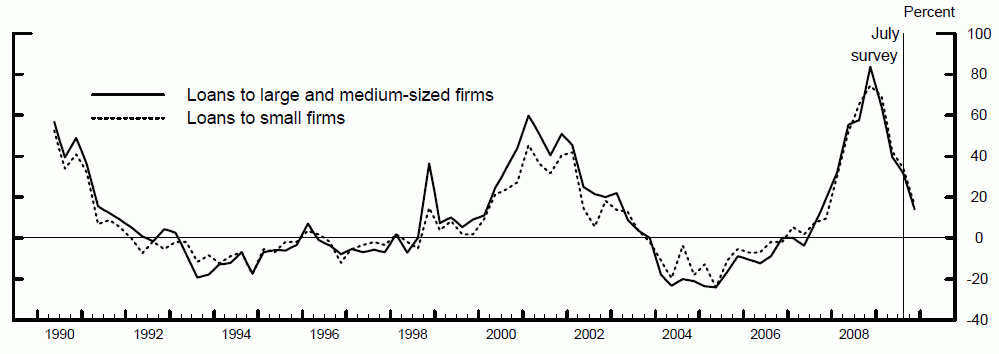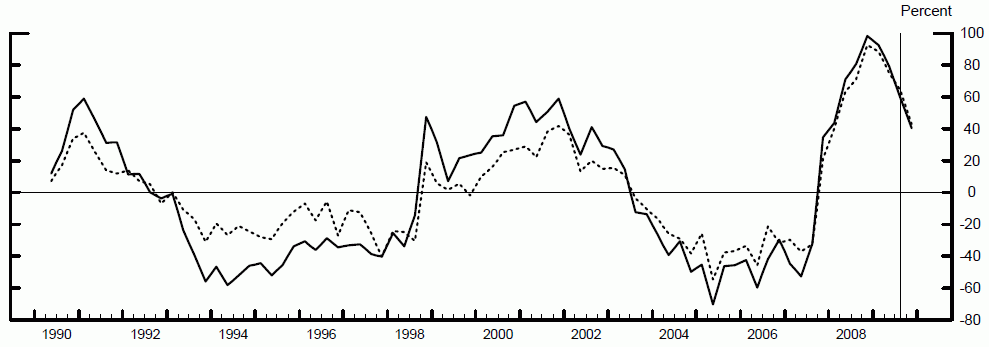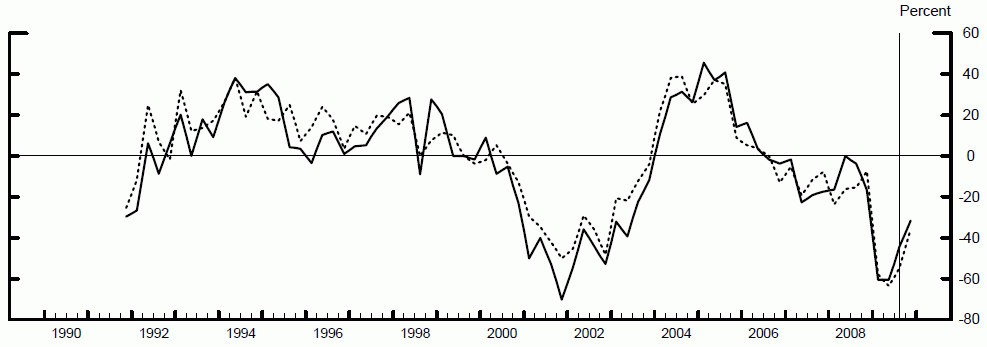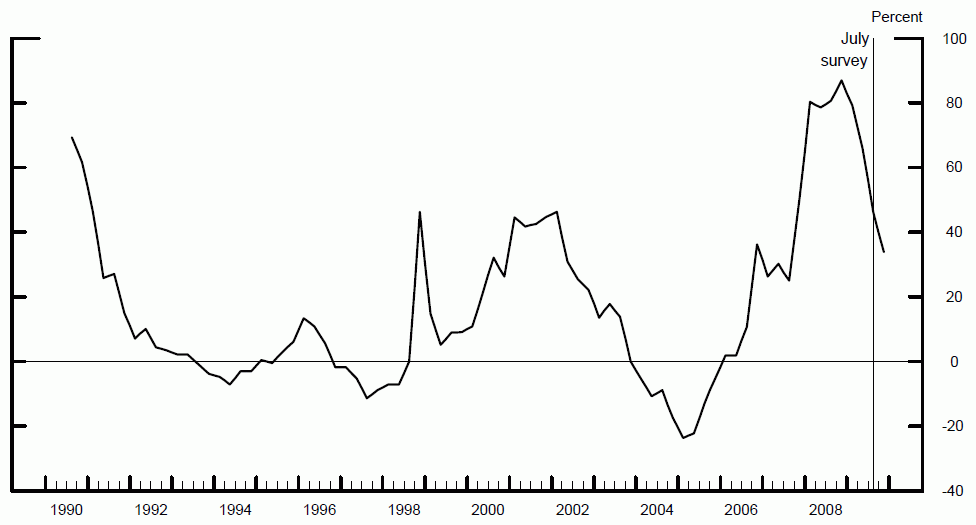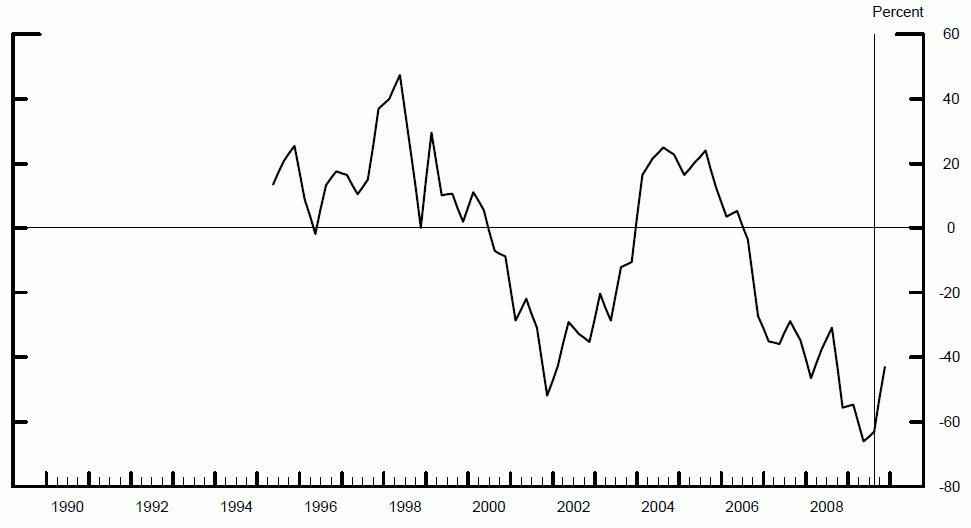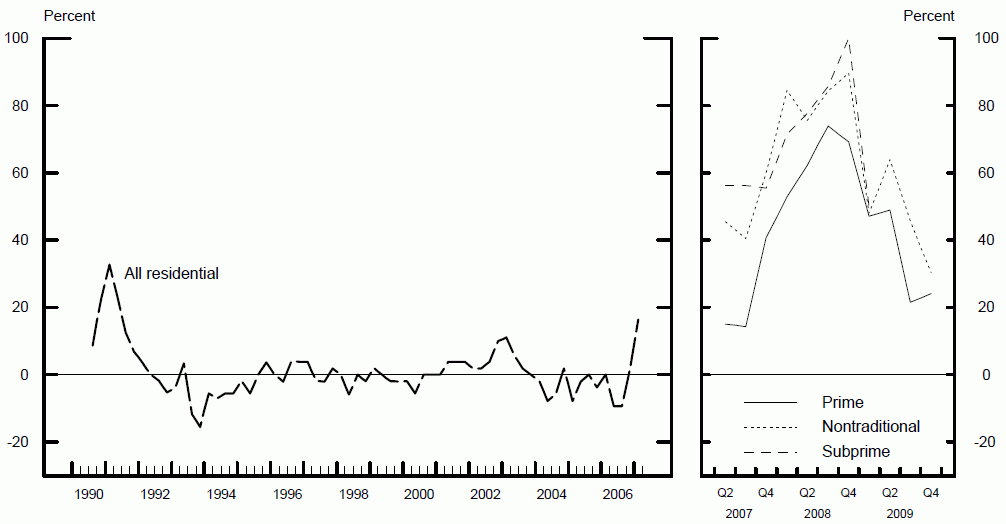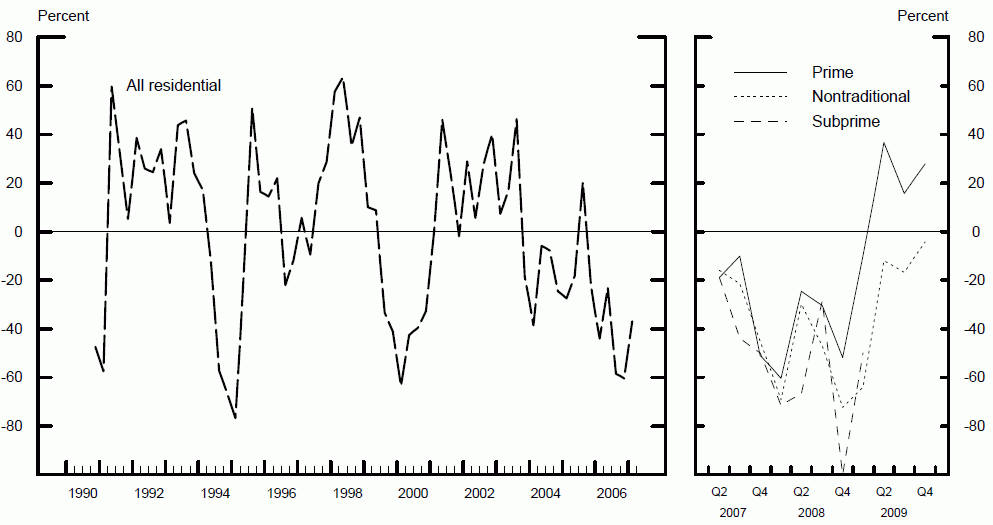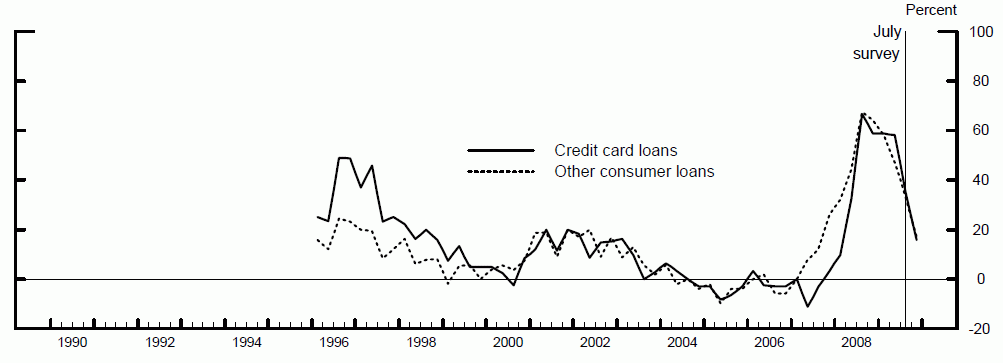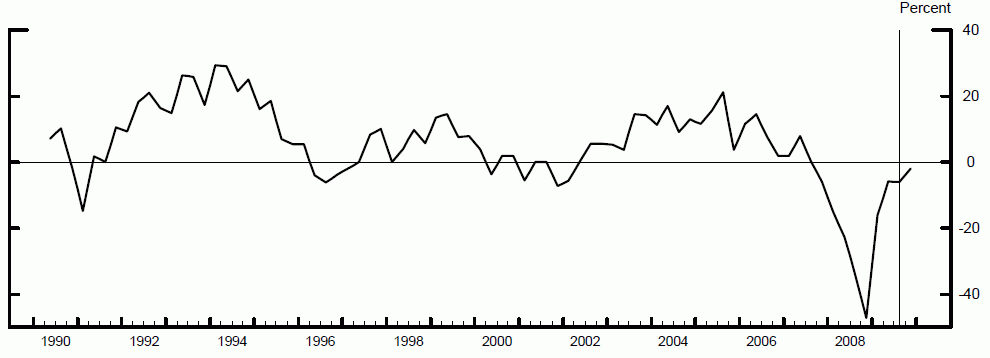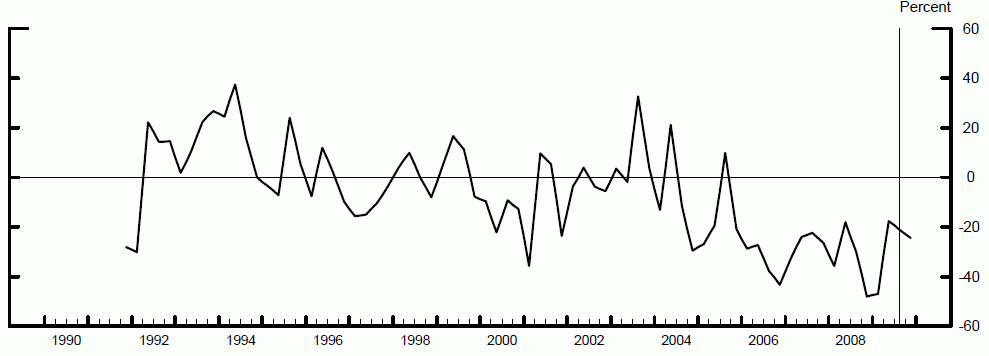October 2009 Senior Loan Officer Opinion Survey on Bank Lending Practices
Full report. No recovery here. Credit continues to contract; both demand is weaker and lending standards are tightened. Summary:
In the October survey, domestic banks indicated that they continued to tighten standards and terms over the past three months on all major types of loans to businesses and households. However, the net percentages of banks that tightened standards and terms for most loan categories continued to decline from the peaks reached late last year.2 The exceptions were prime residential mortgages and revolving home equity lines of credit, for which there were only small changes in the net fractions of banks that had tightened standards. A small net fraction of branches and agencies of foreign banks eased standards on C&I loans, whereas a significant net fraction continued to tighten standards on CRE loans. Demand for most major categories of loans at domestic banks reportedly continued to weaken, on balance, over the past three months. This weakening was somewhat less widespread than in the July survey for C&I loans, CRE loans, and nontraditional mortgages; approximately the same for consumer loans; and significantly more widespread for home equity lines of credit. However, banks reported stronger demand, on net, for prime residential real estate loans. Demand for C&I and CRE loans at foreign banks continued to weaken, on balance, but the weakening was somewhat less widespread than that in the July survey.
…
In response to a special question on the sources of the decline in C&I lending this year, the two sources domestic banks cited most often as being “very” important were decreased originations of term loans and decreased draws on revolving credit lines. In response to a second special question, banks indicated that, of the CRE loans on their books that were scheduled to mature by September of this year, more loans had been extended than refinanced. In response to special questions concerning the Credit CARD legislation passed in May 2009, a majority of banks reported that they had yet to fully comply with the new law. Banks indicated that they expected to tighten many of the terms and conditions of credit card loans as a result of the legislation, with the notable exception of penalty fees and the length of the grace period for payments.
Measures of Supply and Demand for Commercial and Industrial Loans, by Size of Firm Seeking Loan
Chart 1. Net Percentage of Domestic Respondents Tightening Standards for Commercial and Industrial Loans
Chart 2. Net Percentage of Domestic Respondents Increasing Spreads of Loan Rates over Banks’ Costs of Funds
Chart 3. Net Percentage of Domestic Respondents Reporting Stronger Demand for Commercial and Industrial Loans
Measures of Supply and Demand for Commercial Real Estate Loans
Chart 4. Net Percentage of Domestic Respondents Tightening Standards for Commercial Real Estate Loans
Chart 5. Net Percentage of Domestic Respondents Reporting Stronger Demand for Commercial Real Estate Loans
Measures of Supply and Demand for Residential Mortgage Loans
Chart 6. Net Percentage of Domestic Respondents Tightening Standards for Residential Mortgage Loans
Chart 7. Net Percentage of Domestic Respondents Reporting Stronger Demand for Residential Mortgage Loans
Measures of Supply and Demand for Consumer Loans
Chart 8. Net Percentage of Domestic Respondents Tightening Standards for Consumer Loans
Chart 9. Net Percentage of Domestic Respondents Reporting Increased Willingness to Make Consumer Installment Loans
Chart 10. Net Percentage of Domestic Respondents Reporting Stronger Demand for Consumer Loans
